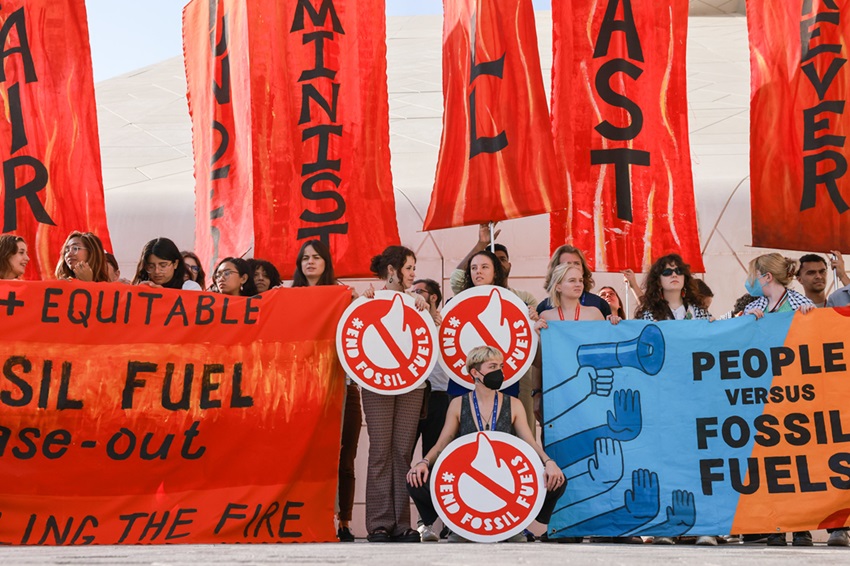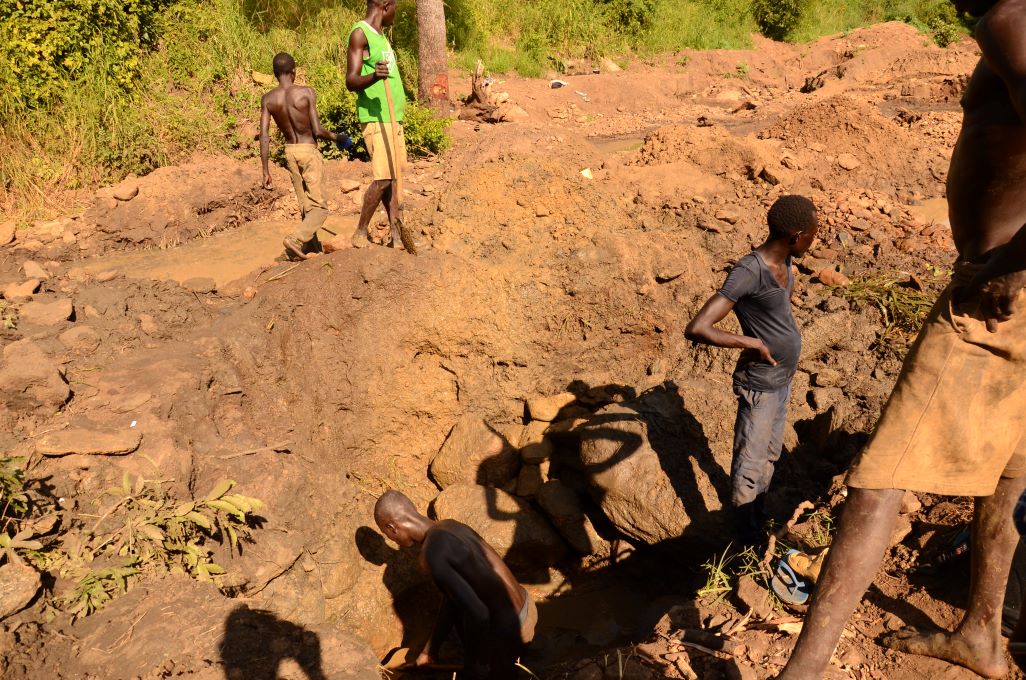
By Kofi Adu Domfeh
The outcome of COP28 in Dubai, United Arab Emirates, after two weeks of rigorous climate change deliberations, was mixed, with some positive developments for Africa but a lack of progress on other vital concerns.
The first agreement reached at this COP concerned the operationalisation of the Loss and Damage Fund; the text came out on the second day of the meeting, with commitments to the fund totalling more than USD 700 million.
The Emirates Declaration on Sustainable Agriculture Systems and Food Security came second in line, the first such declaration at a COP. The declaration recognizes the importance of Indigenous Peoples in food systems and empowers farmers and fishermen.
On the Global Goal on Adaptation, experts decried a need for clearer targets and the use of vague language. The goal is also said to be not explicitly time-bound.
With the declaration on the phaseout of fossil fuels, Executive Secretary of UN Climate Change, Simon Stiell, acknowledged COP28 needed to signal a hard stop to humanity’s core climate problem – fossil fuels and their planet-burning pollution.
“Whilst we didn’t turn the page on the fossil fuel era in Dubai, this outcome is the beginning of the end,” he said.
COP28 also made strides in tripling renewables and doubling energy efficiency, making an initial down payment.
“Now all governments and businesses need to turn these pledges into real-economy outcomes, without delay,” said Stiell.
“We must get on with the job of putting the Paris Agreement to full work. In early 2025, countries must deliver new Nationally Determined Contributions. Every single commitment – on finance, adaptation, and mitigation – must bring us in line with a 1.5-degree world,” he added.
Least Developed Countries Group reacts
Reacting to the outcomes of COP28, Madeleine Diouf Sarr, Chair of the Least Developed Countries Group, said the Dubai decision is historic in including the first reference to fossil fuels, but the group is concerned about the loopholes that it leaves open, which could limit genuine emissions reductions and ambition.
“This outcome is not perfect, we expected more. It reflects the very lowest possible ambition that we could accept rather than what we know, according to the best available science, is necessary to urgently address the climate crisis,” he stated.
According to Madeleine, limiting warming to 1.5C is a matter of survival, and international cooperation remains key to ensuring it.
“Alignment with 1.5C not only requires countries to urgently reduce domestic emissions but also the delivery of significant climate finance so that we can continue our leadership in going well beyond our fair share of the global effort when it comes to reducing emissions,” he noted.
On the Global Goal on Adaptation, Ms Sarr said “the adoption of the GGA Framework at COP28 is a historic achievement; however, our work is far from over. We must now focus on the critical next steps, including developing indicators, to ensure the framework’s progress is accurately tracked and measured.”
Transition away from fossils marred by lack of finance
Climate Action Network, together with civil society across the world, used their collective power in centering the end of fossil fuels through a fair, fast and funded just transition at COP28.
But they expect the polluting countries and companies to deliver the funding to achieve a just and equitable transition away from fossil fuels.
“The COP outcome opened the road for a fossil fuel-free world, but this road is full of potholes, dangerous distractions and if allowed, could lead to a dead end,” said Tasneem Essop, Executive Director, CAN International.
“We are determined to fight for securing international support from the rich nations for the developing world as a key enabler for more ambitious commitments and a just and equitable transition to a fossil free future,” she added.
Mohamed Adow, Director of Power Shift Africa also noted that “for the first time in three decades of climate negotiations, the words fossil fuels have ever made it into a COP outcome. We are finally naming the elephant in the room. The genie is never going back into the bottle and future COPs will only turn the screws even more on dirty energy”.
“Some people may have had their expectations for this meeting raised too high, but this result would have been unheard of two years ago, especially at a COP meeting in a petrostate. It shows that even oil and gas producers can see we’re heading for a fossil-free world,” he added.
Position of African Group of Negotiators
Africa’s cumulative historical emissions are a paltry 3 percent of the global total; current emissions from the energy and industrialized sector are also an inconsequential 3 percent for a continent of over 50 countries and 1.5 billion people.
The African Group of Negotiators on Climate Change (AGN) wanted the recognition of the full right for Africa to exploit its natural resources sustainably and in line with sustainable development and poverty eradication needs, consistent with Agenda 2063.
“It must be understood that Africa will need to exploit its natural resources and renewable energy endowments to achieve universal access to energy as per SDG 9,” said AGN Chair, Eng. Collins Nzovu.
He noted that Africa is in support of limiting warming to 1.5°C, however, this should be based on differentiated pathways where African countries close the supply gap, rather than developed countries continuing to issue exploration licenses to avoid stranded assets as the African supply will be towards the global demand.
“The economic impact of stranded assets could amount to trillions of dollars. Fossil fuel assets are most vulnerable over the coming decade; oil and gas assets are more vulnerable toward mid-century,” said the statement.
However, Landry Ninteretse, Regional Director of 350Africa.org, frowned on the statement by the AGN.
He posited that “reliance on fossil fuels not only sets us on a perilous path to further destruction but also won’t bring a tangible benefit in people’s lives and livelihoods. Fairness and differentiation are key to this energy transition.
“Our continent is abundant in renewable energy resources that, if developed, can address the continent’s dual energy and climate crises. Neo-colonialist and extractivist approaches that have long characterized fossil fuel exploitation must stop. Rather than fight to explore polluting fossils, the focus should be on calling for developed nations to deliver adequate and favourable financing towards a fast and fair transition away from fossils”.
Stance of African CSOs and Non-State Actors
The African Civil Society and the Non-State Actors Committee (NSA) observed the negotiations had been frustrating, particularly in securing progressive decisions on the Global Goal on Adaptation and its means of implementation.
“Implementing strong adaptation measures remains at the heart of addressing historical and current climate injustice, and this must be complemented with sufficient means of implementation, to be precise, climate finance. Africa demands immediate and substantial action to address the lack of sufficient adaptation measures for the continent, recognizing historical injustices,” said the groups in the statement.
Al Gore, former US Vice President and Founder of Climate Reality Project, emphasized that the world desperately needs to phase out fossil fuels as quickly as possible.
“But this obsequious draft reads as if OPEC dictated it word for word. It is even worse than many had feared,” he stated.
“In order to prevent COP28 from being the most embarrassing and dismal failure in 28 years of international climate negotiations, the final text must include clear language on phasing out fossil fuels. Anything else is a massive step backwards from where the world needs to be to truly address the climate crisis and make sure the 1.5°C goal doesn’t die in Dubai,” he added.
The UN Climate Change says the negotiations on the ‘enhanced transparency framework’ at COP28 laid the ground for a new era of implementing the Paris Agreement.
Azerbaijan will host COP29, where governments must establish a new climate finance goal, reflecting the scale and urgency of the climate challenge.
At COP30 in Brazil, they must come prepared with new nationally determined contributions that are economy-wide, cover all greenhouse gases and are fully aligned with the 1.5°C temperature limit.











